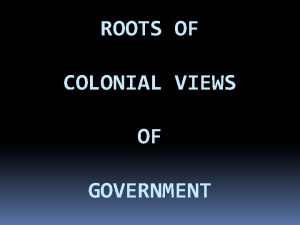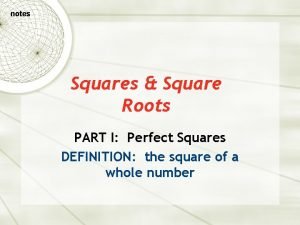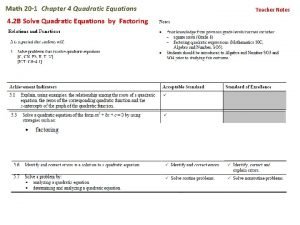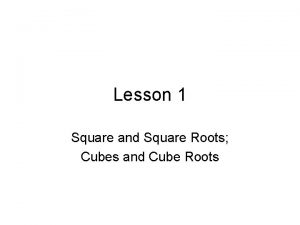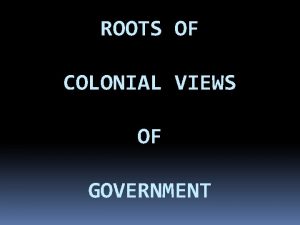ROOTS OF COLONIAL VIEWS OF GOVERNMENT RELIGIOUS AND





- Slides: 5

ROOTS OF COLONIAL VIEWS OF GOVERNMENT

RELIGIOUS AND CLASSICAL ROOTS • Ancient Judaism stressed that people should seek to create a just society based on respect for the law. Colonial thinkers based their notion of justice on this idea. • Christians believed in natural law, the idea that a universal set of moral principles existed. Many colonists believed that a human law that violated natural law was unjust and should be changed. • Ancient Greeks introduced the idea of direct democracy, or decision making by all citizens. Direct democracy took root in New England’s town meetings, where citizens gathered to solve local problems. • From ancient Romans came the idea of representative government, or decision making by elected officials. This idea would be the basis of U. S. government.

ENGLISH ROOTS • The Magna Carta defined the rights and duties of English nobles, set limits on the monarch’s power, and established the principle of the rule of law. The colonists had great respect for the traditions of English government. • The Petition of Right demonstrated the idea of limited government by affirming that the king’s power was not absolute. The idea of limited government was one of the principles that colonists admired in English government. • The English Bill of Rights reaffirmed the principle of individual rights established by earlier documents. One reason the colonists rebelled was to secure their individual rights, which they believed had been denied to them.

ENGLISH ENLIGHTENMENT • Thomas Hobbes first introduced the idea that government was the result of a social contract between people and their rulers. His social-contract theory laid the groundwork for the idea that government was formed by the consent of the people. • John Locke wrote about the idea that all people were equal and enjoyed certain natural rights, such as the right to life, liberty, and property. This idea exerted a powerful influence on colonial thinkers and would be used to justify the revolution.

FRENCH ENLIGHTENMENT • Montesquieu introduced the idea of separation of powers, in which governments are organized to prevent any one person or group from dominating others. Americans applied this idea to their colonial governments. • Jean – Jacques Rousseau believed in the idea that a government formed by a social contract was legitimate if based on popular sovereignty. Some colonial leaders, including Thomas Paine, agreed with this idea that the government should be based on the will of the people.
